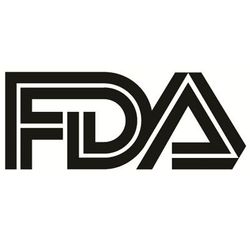
OR WAIT null SECS
Anaphylaxis Treatment FAQ: When to Give Epinephrine, Order Tests, Call 911
A quick guide for clinicians on epinephrine dosing, optimal observation periods, and the role of tryptase and other labs in anaphylaxis care.
Frequently asked questions (FAQ) about treating anaphylaxis:
When should I give my patients epinephrine for suspected anaphylaxis?
What’s the best observation period when treating anaphylaxis?
What test should I order for patients who experienced anaphylaxis?
Why should I instruct patients to call 911 after using an epinephrine auto-injector?
HCPLive asked Marcus Shaker, MD, MSc, professor of pediatrics and medicine at the Geisel School of Medicine at Dartmouth, rapid-fire FAQ questions about the treatment of anaphylaxis.
HCPLive: When should epinephrine be administered for suspected anaphylaxis?
Shaker: Right away. Epinephrine is the first-line treatment for suspected anaphylaxis.
HCPLive: What's the best observation period when treating anaphylaxis?
Shaker: The best observation period varies and depends on context and severity of anaphylaxis. For patients who have resolved non-severe anaphylaxis for at least an hour, the likelihood of recurrence of anaphylaxis is in the range of 5%.
HCPLive: What test should you order for patients who experienced anaphylaxis?
Shaker: The blood test is called the serum tryptase, and it can be very helpful in establishing a diagnosis.
HCPLive: Why do some patients need to call 911 even after using an epinephrine auto-injector?
Shaker: If symptoms are severe or don't immediately resolve or nearly resolve, patients may need additional epinephrine. They may need additional support, including oxygen and IV fluid. Anaphylaxis can be severe and life-threatening, so if symptoms have not completely resolved or if they recur, patients should call 911 and seek care immediately.
Shaker’s Presentation at ACAAI 2025
At the 2025 American College of Allergy, Asthma, & Immunology Annual Scientific Meeting in Orlando, Florida, from November 6 – 10, Shaker presented on misconceptions many people have surrounding epinephrine use in anaphylaxis management.1,2 According to Shaker, one of the most enduring myths both clinicians and patients have about epinephrine is that it is dangerous.1
“It's not,” Shaker told HCPLive during the meeting. “Epinephrine is the first-line treatment of anaphylaxis, and if you're having a severe allergic reaction, it is the recommended approach.”
Another misconception he listed was the necessity of calling 911 after administering epinephrine. Although patients may need to call 911 in certain situations, such as experiencing persistent or worsening symptoms, cardiovascular involvement, or a history of severe reactions, involving emergency services is not always necessary. Shaker said this misconception may result in patients not using their epinephrine to avoid a hospital visit. This myth can also feed the misbelief that epinephrine is dangerous.
At the conference, Shaker also discussed the nuanced approach clinicians must take when managing patients with a known trigger for anaphylaxis.2 For instance, it may not be helpful to test a patient for peanut allergies if they are already 100% certain they have a peanut allergy. In this case, it would be more logical to shift the focus from diagnosis to treatment and preparedness.
Clinicians have many food allergy treatment options to select from, including oral and sublingual immunotherapy, biologics such as omalizumab, and a growing range of epinephrine delivery options. He said all of these options allow for richer discussions with patients and families about goals of care and management preferences.
References
Shaker M. Epinephrine Misconceptions Persist in Anaphylaxis Care, With Marcus Shaker, MD. HCPLive. November 7, 2025. https://www.hcplive.com/view/epinephrine-misconceptions-persist-anaphylaxis-care-marcus-shaker-md. Accessed November 26, 2025.
Shaker M. When to Prescribe Epinephrine for Known Anaphylaxis Triggers, With Marcus Shaker, MD. HCPLive. November 7, 2025. https://www.hcplive.com/view/when-prescribe-epinephrine-known-anaphylaxis-triggers-marcus-shaker-md. Accessed November 26, 2025.


